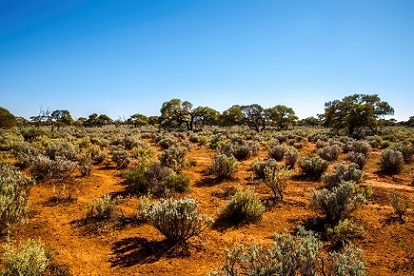
Earlier this year, Klein was recognised as one of 12 highly-inspirational educators in the inaugural Commonwealth Bank Teaching Awards – the achievement comes in spite of an extremely remote location, a high staff turnover rate, and a transient student cohort.
Tjuntjuntjara Remote Community School – where Klein is the teaching principal – sits 700km east of Kalgoorlie and about 460km from the nearest WA community, Warakurna. Food deliveries arrive once a fortnight while mail is flown in on a weekly basis.
“You get really good at logistics because you have to,” Klein tells the Educator. “You don’t have a freight service if you want to get your equipment for school and if you want to take kids swimming, it’s a 10-hour bus trip – it does provide some challenges.”
While the arrangement may be demanding, it’s one Klein has become accustomed to after a long career of working in Australia’s remote and rural schools.
“This is my 20th year in really remote communities in Western Australia,” he reveals. “I even had the opportunity to open the last one-teacher school in the state.”
Located near the bottom of Lake Argyle in the in East Kimberley region, Klein spent three years overseeing the school, where he was the only non-Aboriginal person in the community.
“That certainly changes your perspective and certainly develops your independence,” he says.
Klein has also worked stints in Perth and Kalgoorlie as well as smaller, central desert communities like Jameson, Warburton and Wiluna.
“There are some wonderful things with living and working in remote communities that are just amazing and we need to recognise those,” he says. “The number one thing is the people.”
Despite major cultural differences, Klein says he has been welcomed warmly into communities – even when he’s returned after decades away.
“Going back to Jameson after 20 years, it was like going home – people just welcomed you as part of that community again even though you’d just spent a glimpse of time there before,” he said. “They are always happy to share their language and culture.”
Klein also said it was rewarding to see small communities getting involved and supporting their schools and children.
“Often people make the mistake that kids living in poverty aren’t loved but the parents, their love for their children is the same as anybody else around the world,” he told the Educator.


